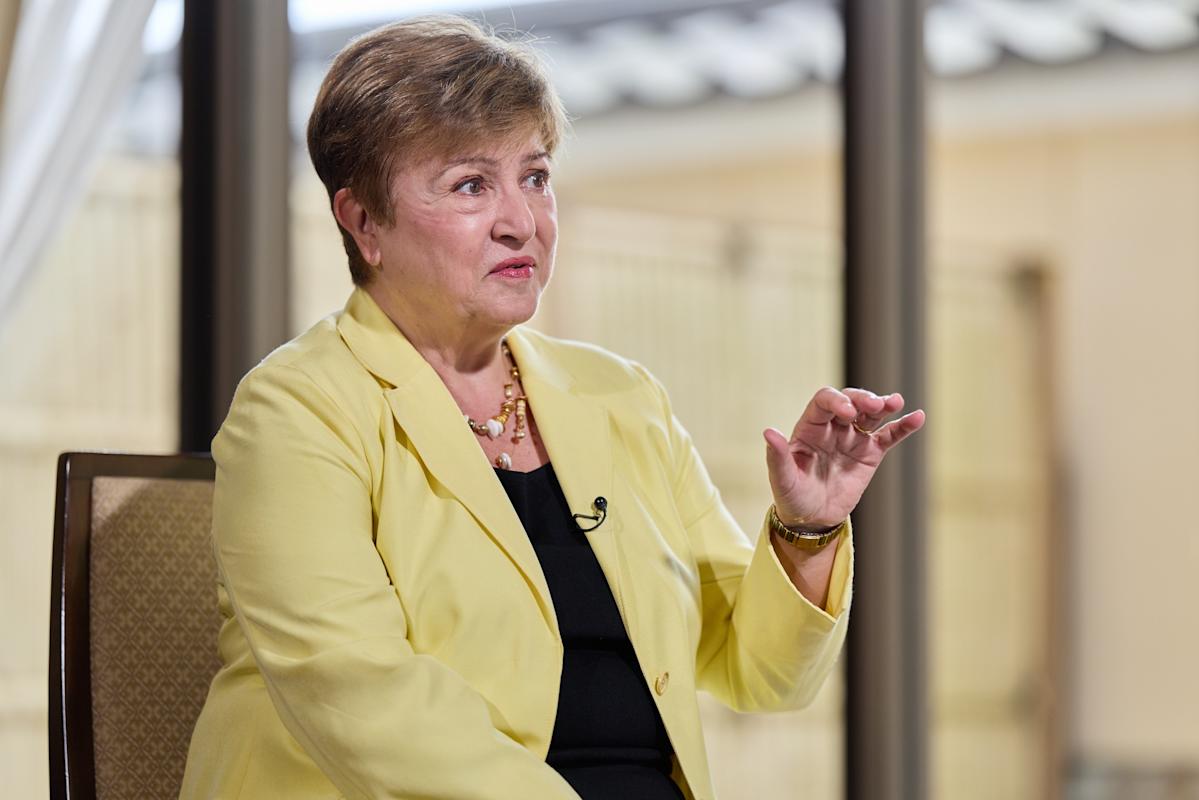Kristalina Georgieva
(Bloomberg) — Central bankers, already uneasy about trade tensions and swelling public debt, will collectively confront a new worry in the coming week: the danger of a market crash.
Global policymakers and finance ministers will gather in Washington for the International Monetary Fund/World Bank fall meetings after a chorus of warnings that a stock bubble focused on artificial intelligence companies might burst before long.
Most Read from Bloomberg
Kristalina Georgieva, the fund’s managing director, acknowledged the financial stability risk in a speech on Wednesday that previewed topics for discussion in the coming days.
Kristalina GeorgievaPhotographer: Shoko Takayasu/Bloomberg
“Valuations are heading toward levels we saw during the bullishness about the internet 25 years ago,” she said. “If a sharp correction were to occur, tighter financial conditions could drag down world growth, expose vulnerabilities, and make life especially tough for developing countries.”
Her warning was arguably more forthright than the IMF’s commentary from the October 2000 meeting, when its World Economic Outlook described “still high” equity valuations and the potential for imbalances to unwind “in a disorderly fashion.” Within months, the selloff momentum was such that the Federal Reserve was forced to deliver an emergency half-point interest-rate cut.
Even before US President Donald Trump’s renewed China tariff threat tanked stocks on Friday, officials saw alarming parallels. The Bank of England just warned of the risk of a “sharp market correction,” European Central Bank policymakers worried aloud, and the Reserve Bank of Australia this month also noted vulnerabilities.
Such concerns have been mounting for a while. ECB officials were presented with the warning of “sudden and sharp price corrections” at their last policy meeting more than a month ago, while Fed Chair Jerome Powell observed in September that markets are “highly valued.”
Fast forward to the coming week, and the IMF’s Global Financial Stability Report — a publication that didn’t even exist back in 2000 — may draw more attention than usual on Tuesday. The latest WEO, with economic forecasts for the world, will also be released.
Statements from Group of Seven or Group of 20 ministers attending the IMF gathering will also be scrutinized, as will the cacophony of policymakers likely to share their views.
